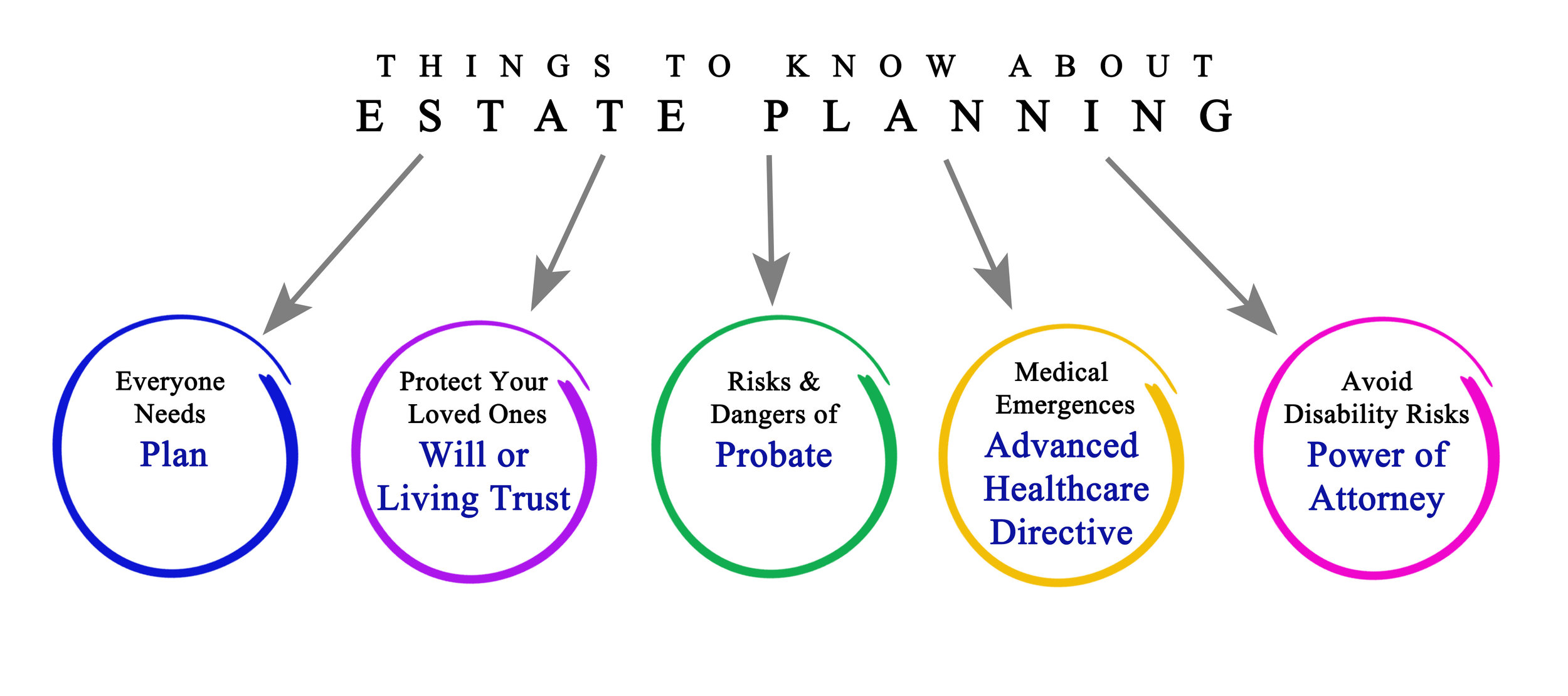ESTATE PLANNING
A comprehensive estate plan is the best way to ensure that your loved ones are cared for in difficult times. I work closely with every client to draft a tailored plan that addresses their specific needs. Below are some of the estate planning services I offer.
OUR SERVICES
Wills
Revocable Living Trusts
Special Needs Trusts
Marital Trusts
Separate Property Trusts
Certification of Trust
Assignment of Property to Trust
Funding Trusts
Trust Administration
Advance Health Care Directives/Durable Powers of Attorney for Health Care
HIPAA Releases
Durable Powers of Attorney for Finances
Guardian Nomination for Minor Children
Trust Transfer Deed, Grant Deed, Quitclaim Deed, Interspousal Transfer Deed
Probate
Trust administration
Trustees may find themselves in the often-confusing process of administering a trust after the death of a loved one. I understand that this can be a very difficult time for the surviving family members. I ensure that my trustee clients understand their fiduciary duties, as well as provide step-by-step guidance to assist a trustee in inventorying and valuing trust assets, providing notifications to the trust beneficiaries as required by law, selling assets when necessary, providing necessary accountings or obtaining waiver of accountings where appropriate, and distributing assets to beneficiaries. I have administered a wide variety of trust estates, from modest and simple trusts to trusts worth tens of millions of dollars. I provide a full range of trust administration services to trustees to ensure that the trust is administered and distributed according to the Trustor's wishes, and that the trustee is protected from liability.
PROBATE administration
When a person passes away with just a will, or without any estate plan at all, his or her family is often required to put the estate through a court managed process called probate. Probate refers to the process where a court oversees the administration of a deceased person's estate.
No two probates are exactly the same, but most of them involve locating the will and filing a Petition for Probate with the court. The petition must be filed in the county where the deceased resided at the time of his or her death. Once the will has been accepted, the court appoints a personal representative, sometimes known as an executor or administrator. After that, the heirs need to be formally noticed in writing and they have the opportunity to review the will and make any appropriate challenges or contests. After all notices required by law are given and debts and taxes are paid, assets are distributed in accordance with the will or pursuant to laws of intestacy in cases when there is no will. Some assets, like life insurance and retirement accounts, might not be affected by probate and pass directly to the named beneficiary.
Probate administration services include the preparation of necessary court pleadings, court appearances, assisting the personal representative in the preparation of an inventory of estate assets, sale of estate assets, payments of debts of the decedent, resolving and compromising creditor claims, and final distribution to those entitled to the decedent's estate.


